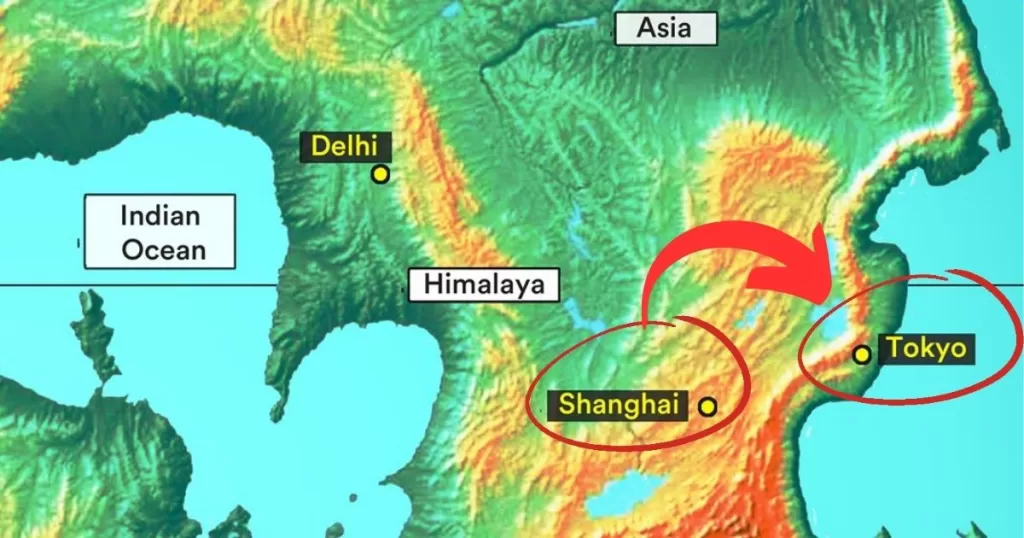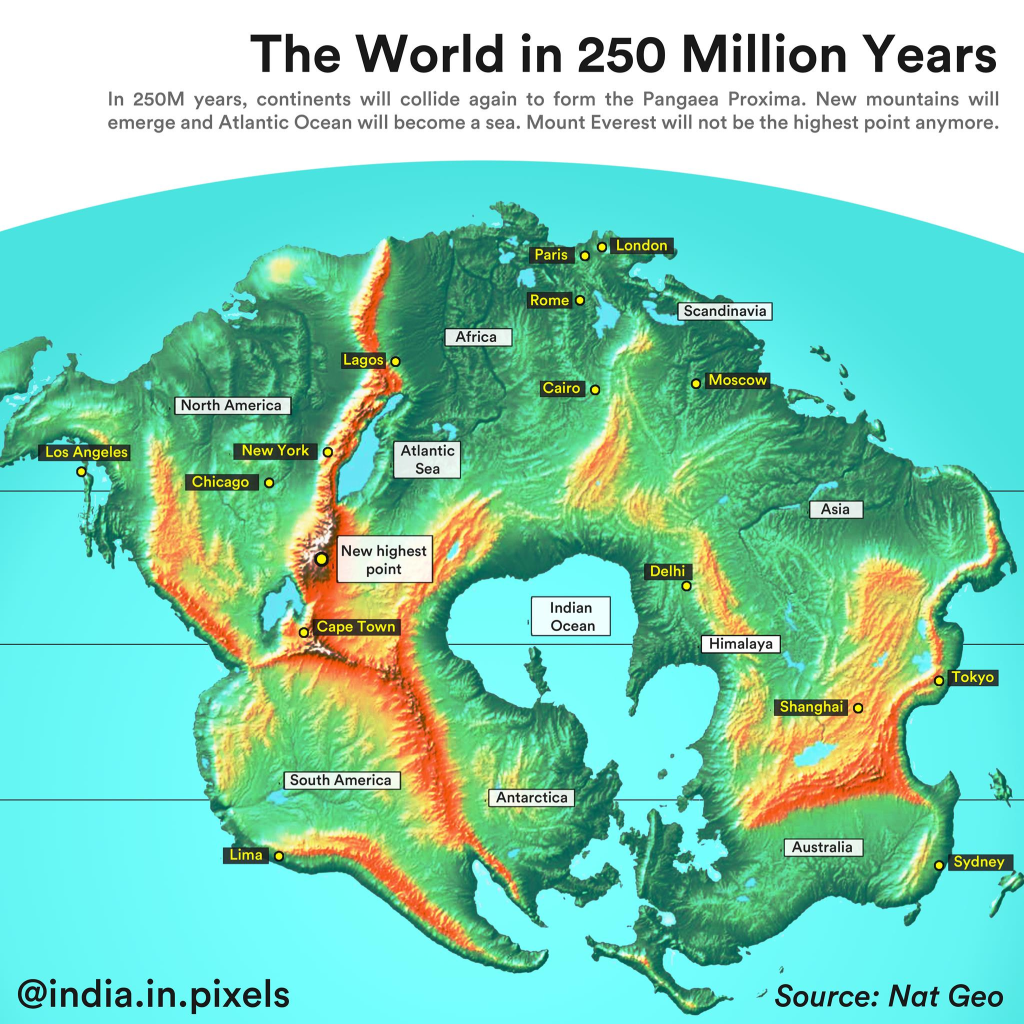What if Japan and China Were Connected by Land? A Stunning Prediction for the Future
Imagine waking up one day and finding out that Japan is no longer an island nation, but a peninsula attached to mainland China. How would that change the lives of millions of people, the culture, the politics, and the environment of both countries?
This may sound like a science fiction scenario, but according to a map created by National Geographic, it could be a reality in the distant future.






The map shows how Earth’s continents may look like in 250 million years, when they are expected to merge into a new supercontinent called Pangaea Proxima.
The map is based on the theory of plate tectonics, which explains how the Earth’s crust is divided into several large and small pieces that move around due to the heat and pressure from the mantle below.
Over millions of years, these plates collide, separate, or slide past each other, causing earthquakes, volcanoes, mountains, and rifts.
According to the map, Japan is one of the most affected regions by the plate movements, as it is squeezed between the Eurasian plate and the Pacific plate.
The map shows that Japan will be pushed westward, eventually colliding with China and forming a mountain range along the coast. The Sea of Japan will become a narrow inland sea, similar to the Mediterranean Sea today.
The map also shows other dramatic changes in the geography of the world. For example, Africa will move northward and close the Mediterranean Sea, creating a mountain range that spans from Spain to Iran.
Australia will drift northward and collide with Southeast Asia, forming a large landmass that includes Indonesia and New Guinea.
Antarctica will move away from the South Pole and become warmer and greener. The Atlantic Ocean will shrink, while the Pacific Ocean will expand.
These changes will have profound impacts on the climate, biodiversity, and human civilization of the planet. Some regions will become drier, while others will become wetter.
Some species will go extinct, while others will evolve and adapt. Some cultures will merge, while others will clash. Some countries will cooperate, while others will compete. The future of Earth’s continents is uncertain, but one thing is certain: it will be very different from what we know today.